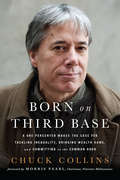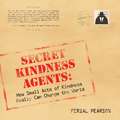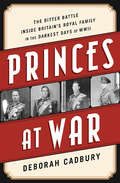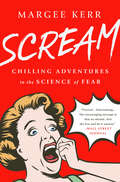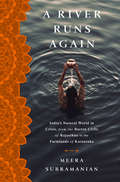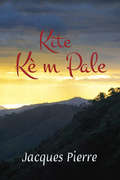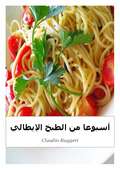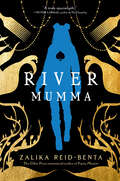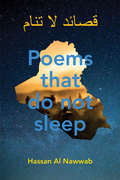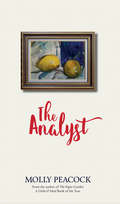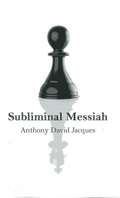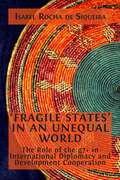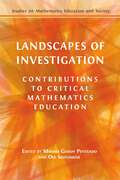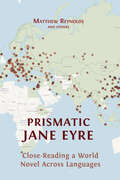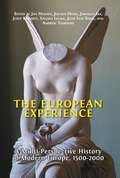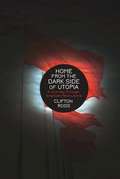- Table View
- List View
Born on Third Base: A One Percenter Makes the Case for Tackling Inequality, Bringing Wealth Home, and Committing to the Common
by Chuck CollinsAs inequality grabs headlines, steals the show in presidential debates, and drives deep divides between the haves and have nots in America, class war brews. On one side, the wealthy wield power and advantage, wittingly or not, to keep the system operating in their favor—all while retreating into enclaves that separate them further and further from the poor and working class. On the other side, those who find it increasingly difficult to keep up or get ahead lash out—waging a rhetorical war against the rich and letting anger and resentment, however justifiable, keep us from seeing new potential solutions. But can we suspend both class wars long enough to consider a new way forward? Is it really good for anyone that most of society’s wealth is pooling at the very top of the wealth ladder? Does anyone, including the one percent, really want to live in a society plagued by economic apartheid? It is time to think differently, says longtime inequality expert and activist Chuck Collins. Born into the one percent, Collins gave away his inheritance at 26 and spent the next three decades mobilizing against inequality. He uses his perspective from both sides of the divide to deliver a new narrative. Collins calls for a ceasefire and invites the wealthy to come back home, investing themselves and their wealth in struggling communities. And he asks the non-wealthy to build alliances with the one percent and others at the top of the wealth ladder. Stories told along the way explore the roots of advantage, show how taxpayers subsidize the wealthy, and reveal how charity, used incorrectly, can actually reinforce extreme inequality. Readers meet pioneers who are crossing the divide to work together in new ways, including residents in the author’s own Boston-area neighborhood who have launched some of the most interesting community transition efforts in the nation. In the end, Collins’s national and local solutions not only challenge inequality but also respond to climate change and offer an unexpected, fresh take on one of our most intransigent problems.
Secret Kindness Agents: How Small Acts Of Kindness Really Can Change The World
by Ferial PearsonSometimes the small things make all the difference. Moved by the Sandy Hook Elementary School tragedy, Ferial Pearson wondered if a simple act of kindness could change a life. She thought of the school where she taught and the students she guided every day and wondered, what would happen if we started secretly carrying out small acts of kindness in school? Could a modest act of compassion really change the course of a life? She posed the question to her students. They didn’t have the answers but they were willing to find out. And so they became the Secret Kindness Agents. They not only changed the lives of those they met, they changed their own. Their hope, their hearts, and their hunger for happiness will inspire you to change your small corner of the world, in your own way, for the better. Let them show you how they did it, and how you can do the same.
Princes at War: The Bitter Battle Inside Britain's Royal Family in the Darkest Days of WWII
by Deborah CadburyThis book tells the story of four sons of King George V during the period that the monarchy faced the greatest threats to its survival in the modern era the crisis of the abdication, and the nationwide threat to Britain of the Nazis, inside and out. The threat of world war echoed the war within the royal family. Played out against the cataclysm of the Second World War the princes’ actions for good or ill became all the more significant and magnified on a world stage. The war served to unleash passions at a time when the very function of royalty as head of the empire was under threat. It served as a crucible that made or destroyed each of the princes. One would die in mysterious circumstances forever mired in conspiracy and scandal; another was destroyed in all but name, a third slipped into comfortable obscurity, and the fourth rose to new heights of achievement redefining the monarchy for the modern age. The catalyst for the story is one dangerous American woman: Wallis Simpson. The consequences of her actions drive one prince to an early grave and the other to become a living wreck of a man nursing long held grievances. Recently discovered letters show that Wallis herself was caught in a trap of her own making: a life entombed in a gilded cage with a man she could not respect and whom she tried to leave. Everything she wished for, she destroyed. Famously she is said to have been sent 17 carnations by the Nazi Joachim von Ribbentrop, representing their 17 sexual trysts. George VI’s story is also an allegory for a much wider theme. Starting where the film The Kings Speech ends, a revealing transformation in his character takes place. As he steps up with some dread to the role of king that his older brother spurns, his horizons are widened and he falls into the sphere of influence of brilliant leaders such as Winston Churchill. As Hitler stole country after country for the Third Reich, George VI rose to the challenge, to find the very best in himself, and was transformed by the effort. By the end he can stand alone at the helm, without the support of those who helped him on his way Like fables of old, taking on the challenge transforms the quality of the man but it is also killing him.
Scream: Chilling Adventures in the Science of Fear
by Margee KerrShiver-inducing science not for the faint of heart. No one studies fear quite like Margee Kerr. A sociologist who moonlights at one of America’s scariest and most popular haunted houses, she has seen grown men laugh, cry, and push their loved ones aside as they run away in terror. And she’s kept careful notes on what triggers these responses and why. Fear is a universal human experience, but do we really understand it? If we’re so terrified of monsters and serial killers, why do we flock to the theaters to see them? Why do people avoid thinking about death, but jump out of planes and swim with sharks? For Kerr, there was only one way to find out. In this eye-opening, adventurous book, she takes us on a tour of the world’s scariest experiences: into an abandoned prison long after dark, hanging by a cord from the highest tower in the Western hemisphere, and deep into Japan’s mysterious "suicide forest. ” She even goes on a ghost hunt with a group of paranormal adventurers. Along the way, Kerr shows us the surprising science from the newest studies of fear--what it means, how it works, and what it can do for us. Full of entertaining science and the thrills of a good ghost story, this book will make you think, laugh--and scream.
A River Runs Again: India's Natural World in Crisis, from the Barren Cliffs of Rajasthan to the Farmlands of Karnataka
by Meera SubramanianCrowded, hot, subject to violent swings in climate, with a government unable or unwilling to face the most vital challenges, the rich and poor increasingly living in worlds a∂ for most of the world, this picture is of a possible future. For India, it is the very real present. In this lyrical exploration of life, loss, and survival, Meera Subramanian travels in search of the ordinary people and microenterprises determined to revive India’s ravaged natural world: an engineer-turned-farmer brings organic food to Indian plates; villagers resuscitate a river run dry; cook stove designers persist on the quest for a smokeless fire; biologists bring vultures back from the brink of extinction; and in Bihar, one of India’s most impoverished states, a bold young woman teaches adolescents the fundamentals of sexual health. While investigating these five environmental challenges, Subramanian discovers the stories that renew hope for a nation with the potential to lead India and the planet into a sustainable and prosperous future.
Kite Kè m Pale
by Jacques PierreIn his latest collection of poetry, Kite Kè m pale (Let My Heart Speak), Jacques speaks lovingly and eloquently about those, including women, who have faced and continue to face difficulties and injustice. His poetry sometimes resorts to uncommon forms of Kreyòl such as jagon and bolit to better expressed that which cannot conveyed commonly, and expose everyone to the linguistic wealth of the country.
أسبوعا من الطبخ الإيطالي
by Claudio Ruggeri.قائمة الوصفات البسيطة والمعقدة لالطبخ الإيطالي ، "مسروقة" من القائمة لطباخ كبيرة، أمي
River Mumma
by Zalika Reid-BentaIssa Rae’s Insecure with a magical realist spin: River Mumma is an exhilarating contemporary fantasy novel about a young Black woman who navigates her quarter-life-crisis while embarking on a mythical quest through the streets of Toronto. Alicia has been out of grad school for months. She has no career prospects and lives with her mom, who won’t stop texting her macabre news stories and reminders to pick up items from the grocery store. Then, one evening, the Jamaican water deity, River Mumma, appears to Alicia, telling her that she has twenty-four hours to scour the city for her missing comb. Alicia doesn’t understand why River Mumma would choose her. She can’t remember all the legends her relatives told her, unlike her retail co-worker Heaven, who can reel off Jamaican folklore by heart. She doesn’t know if her childhood visions have returned, or why she feels a strange connection to her other co-worker Mars. But when the trio are chased down by malevolent spirits called duppies, they realize their tenuous bonds to each other may be their only lifelines. With the clock ticking, Alicia’s quest through the city broadens into a journey through time—to find herself and what the river carries. Energetic and invigorating, River Mumma is a vibrant exploration of diasporic community and ancestral ties, and a homage to Jamaican folklore by one of the most invigorating voices in today’s literature.
Poems That Do Not Sleep
by Hassan Al NawwabHassan Al Nawwab is a former Iraqi soldier who came to Australia after the war with his family 20 years ago. With devastating simplicity, these imagistic poems speak of war and terror, of homesickness in exile, the blessings of peace and the pain of belonging. The collection is in two parts, ‘Tree Flying' and ‘Diaspora', and each poem is presented with its counterpart in Arabic on the opposite page, as translated from English by the poet himself.
The Analyst
by Molly PeacockWhen a psychoanalyst became a painter after surviving a stroke, her longtime patient, distinguished and beloved poet Molly Peacock, took up a unique task. The Analyst is a new, visceral, twenty-first century "in memoriam" of ambiguous loss in which Peacock brilliantly tells the story of a decades-long patient-therapist relationship that now reverses and continues to evolve. Peacock invigorates the notion of poetry as word-painting: A tapestry of images, from a red enameled steamer on a black stove to Tibetan monks funneling glowing sand into a painting, create the backdrop for her quest to define identity. From "In Our Unexpected Future":. . . for frocks outlast pillars. But feelingsoutlive frocks. The immaterial storms through,a force beyond years (a mere four since youwere nearly felled). It isn't what happened that lasts. Not art, either, but the savory core. What's felt.
في التعريب والمعرب وهو المعروف بحاشية ابن بري
by عبد الله بن بري بن عبد الجبار المقدسي المصريكتاب عرض فيه ابن بري كتاب "المعرب" لأبي منصور موهوب بن محمد الجواليقي فتعقب أقواله فأورد حواشيه عليها منسوقة على حروف المعجم
كتاب التنبيه على أوهام أبي علي في أماليه
by أبو عبيد الله بن عبد العزيز البكريمن نوادر كتب الأدب. ويضم مجموعة تنبيهات التقطها البكري من كتابه: (اللآلي في شرح أمالي أبي علي القالي) وأفردها في كتاب ليقدمه إلى المعتمد ابن عباد
مطمح الأنفس ومسرح التأنس في ملح أهل الأندلس
by أبو نصر الفتح الإشبيليالكتاب الأيام ثلاثة أقسام القسم الاول يشتمل على سرد غرر الوزراء وتناسق درر الكتاب والبلغاء القسم الثاني يشتمل على محاسن أعلام العلماء وأعيان القضاة والفهماء القسم الثالث يشتمل على سرد محاسن الادباء النوابغ النجباء وسميتها مطمح الأنفس ومسرح التأنس في ملح أهل الأندلس
Studies in Rabbinic Hebrew
by Shai HeijmansThis volume presents a collection of articles centring on the language of the Mishnah and the Talmud – the most important Jewish texts (after the Bible), which were compiled in Palestine and Babylonia in the latter centuries of Late Antiquity. Despite the fact that Rabbinic Hebrew has been the subject of growing academic interest across the past century, very little scholarship has been written on it in English. Studies in Rabbinic Hebrew addresses this lacuna, with eight lucid but technically rigorous articles written in English by a range of experienced scholars, focusing on various aspects of Rabbinic Hebrew: its phonology, morphology, syntax, pragmatics and lexicon. This volume is essential reading for students and scholars of Rabbinic studies alike, and constitutes the first in a new series, Studies in Semitic Languages and Cultures, in collaboration with the Faculty of Asian and Middle Eastern Studies at the University of Cambridge.
‘Fragile States’ in an Unequal World
by Isabel Rocha de SiqueiraThis is a book about people. ‘Fragile States’ in an Unequal World: The Role of the g7+ in International Diplomacy and Development Cooperation introduces the members of the g7+, a group formed by 20 conflict-affected states: why they came to believe in politics and policy; how they feel about their work, their family and their communities; and what they want to leave behind for the next generations It is the story of their personal and collective values, their mistakes, and the challenges they faced, and it will resonate with anyone who has tried to organize and work with a group of very different people.
Landscapes of Investigation: Contributions to Critical Mathematics Education
by Miriam Godoy Penteado and Ole SkovsmoseCreating landscapes of investigation is a primary concern of critical mathematics education. It enables us to organise educational processes so that students and teachers are able to get involved in explorations guided by dialogical interactions. It attempts to address explicit or implicit forms of social injustice by means of mathematics, and also to promote a critical conception of mathematics, challenging the assumption that the subject represents objectivity and neutrality. Landscapes of Investigation provides many illustrations of how this can be done in primary, secondary, and university education. It also illustrates how exploring landscapes of investigation can contribute to mathematics teacher education programmes.
Prismatic Jane Eyre: Close-Reading a World Novel Across Languages
by Matthew Reynolds OthersJane Eyre, written by Charlotte Brontë and first published in 1847, has been translated more than five hundred times into over sixty languages. Prismatic Jane Eyre argues that we should see these many re-writings, not as simple replications of the novel, but as a release of its multiple interpretative possibilities: in other words, as a prism. Prismatic Jane Eyre develops the theoretical ramifications of this idea, and reads Brontë’s novel in the light of them: together, the English text and the many translations form one vast entity, a multilingual world-work, spanning many times and places, from Cuba in 1850 to 21st-century China; from Calcutta to Bologna, Argentina to Iran. Co-written by many scholars, Prismatic Jane Eyre traces the receptions of the novel across cultures, showing why, when and where it has been translated (and no less significantly, not translated – as in Swahili), and exploring its global publishing history with digital maps and carousels of cover images. Above all, the co-authors read the translations and the English text closely, and together, showing in detail how the novel’s feminist power, its political complexities and its romantic appeal play out differently in different contexts and in the varied styles and idioms of individual translators. Tracking key words such as ‘passion’ and ‘plain’ across many languages via interactive visualisations and comparative analysis, Prismatic Jane Eyre opens a wholly new perspective on Brontë’s novel, and provides a model for the collaborative close-reading of world literature. Prismatic Jane Eyre is a major intervention in translation and reception studies and world and comparative literature. It will also interest scholars of English literature, and readers of the Brontës.
The European Experience
by Jan Hansen;Jochen Hung;Jaroslav Ira;Judit Klement;Sylvain Lesage;Juan Luis Simal;Andrew TompkinsThe European Experience brings together the expertise of nearly a hundred historians from eight European universities to internationalise and diversify the study of modern European history, exploring a grand sweep of time from 1500 to 2000.
Genetic Inroads into the Art of James Joyce
by Hans Walter GablerThis book is a treasure trove comprising core writings from Hans Walter Gabler‘s seminal work on James Joyce, spanning fifty years from the analysis of composition he undertook towards a critical text of A Portrait of the Artist as a Young Man, through the Critical and Synoptic Edition of Ulysses, to Gabler‘s latest essays on (appropriately enough) Joyce’s sustained artistic innovation. Not only does this span of essays trace the evolution of Gabler’s thinking about Joyce’s originality and creative energy. It also reflects the development and maturation of Gabler‘s own genetic criticism and his methodology of genetic editing, which grows in depth and complexity across the collection. The reader will explore Joyce’s life and works through Gabler’s incisive eye, while also examining a progress of his reflections on his edition of Ulysses and the past controversy that beset it. This classic compendium combining well-seasoned scholarship and fresh criticism is an essential read for critics of Modernism, digital humanists, scholars and students of James Joyce, and anyone interested in the art of literary analysis.
A Relational Realist Vision for Education Policy and Practice
by Basem AdiThis volume argues that relational realism can help us to make better educational policy that is more effective in practice. Basem Adi draws on critical realism to thoroughly re-examine fundamental assumptions about how government policymaking works, developing an ontological basis from which to examine existing government approaches and imagine an alternative approach based on a relational realist-informed critical pedagogy.
Translating Russian Literature in the Global Context
by Muireann Maguire Cathy McAteerTranslating Russian Literature in the Global Context examines the translation and reception of Russian literature as a world-wide process. This volume aims to provoke new debate about the continued currency of Russian literature as symbolic capital for international readers, in particular for nations seeking to create or consolidate cultural and political leverage in the so-called ‘World Republic of Letters’. It also seeks to examine and contrast the mechanisms of the translation and uses of Russian literature across the globe. This collection presents academic essays, grouped according to geographical location, by thirty-seven international scholars. Collectively, their expertise encompasses the global reception of Russian literature in Europe, the Former Soviet Republics, Africa, the Americas, and Asia. Their scholarship concentrates on two fundamental research areas: firstly, constructing a historical survey of the translation, publication, distribution and reception of Russian literature, or of one or more specific Russophone authors, in a given nation, language, or region; and secondly, outlining a socio-cultural microhistory of how a specific, highly influential local writer, genre, or literary group within the target culture has translated, transmitted, or adapted aspects of Russian literature in their own literary production. Each section is prefaced with a short essay by the co-editors, surveying the history of the reception of Russian literature in the given region. Considered as a whole, these chapters offer a wholly new overview of the extent and intercultural penetration of Russian and Soviet literary soft power during the twentieth and twenty-first centuries. This volume will open up Slavonic Translation Studies for the general reader, the student of Comparative Literature, and the academic scholar alike.
William Moorcroft, Potter: Individuality by Design
by Jonathan MallinsonWilliam Moorcroft (1872-1945) was one of the most celebrated potters of the early twentieth century. His career extended from the Arts and Crafts movement of the late Victorian age to the Austerity aesthetics of the Second World War. Rejecting mass production and patronised by Royalty, Moorcroft’s work was a synthesis of studio and factory, art and industry. He considered it his vocation to create an everyday art, both functional and decorative, affordable by more than a privileged few: ‘If only the people in the world would concentrate upon making all things beautiful, and if all people concentrated on developing the arts of Peace, what a world it might be,’ he wrote in a letter to his daughter in 1930.
Divine Style: Walt Whitman and the King James Bible
by F. W. Dobbs-AllsoppIn exploring the seminal works of Walt Whitman, the great American poet, many commentators have acknowledged the underlying influence of The King James Bible. However, a study has yet to elucidate the precise manner in which the Bible has shaped Whitman’s poetic style. This is the deficit that F. W. Dobbs-Allsopp seeks to address in his new piece of literary scholarship: 'Divine Style: Walt Whitman and the King James Bible'. Dobbs-Allsopp, Professor of Old Testament at Princeton Theological Seminary, explicitly approaches Whitman from the perspective of a biblical scholar. Utilising his wealth of expertise in this field, he constructs a compelling, erudite and methodical argument for the King James Bible’s importance in the evolution of Whitman’s style – from his signature long lines to the prevalence of parallelism and tendency towards parataxis in his works. 'Divine Style' focuses on Whitman’s output in the years preceding the release of his 1855 opus 'Leaves of Grass' through the general period of the book’s first three editions. In this, Dobbs-Allsopp’s exploration of the period is exhaustive – covering not just Leaves of Grass but recently recovered notebooks, newly digitised manuscripts and additions to the corpus, such as the novel 'Life and Adventures of Jack Engle'. This is a work of careful, detailed scholarship, offering an authoritative commentary that will be a valuable resource for students of Whitman, biblical scholars and scholars of literature more generally.
Toevallige ontmoetingen: Bio-ethiek voor een gehavende planeet
by Kristien HensIn dit rigoureuze en noodzakelijke boek brengt Kristien Hens bio-ethiek en filosofie van de biologie bij elkaar, met het argument dat het ethisch noodzakelijk is om in het wetenschappelijk onderzoek een plaatsje vrij te houden voor de filosofen. Hun rol is behalve ethisch ook conceptueel: zij kunnen de kwaliteit en de coherentie van het wetenschappelijk onderzoek verbeteren door erop toe te zien dat specifieke concepten op een consistente en doordachte manier worden gebruik binnen interdisciplinaire projecten. Hens argumenteert dat toeval en onzekerheid een centrale rol spelen in de bio-ethiek, maar dat die in een spanningsrelatie kunnen raken met de pogingen om bepaalde theorieën ingang te doen vinden als wetenschappelijke kennis: bij het beschrijven van organismen en praktijken creëren we op een bepaalde manier de wereld. Hens stelt dat dit noodzakelijk een ethische activiteit betreft.
Home from the Dark Side of Utopia
by Clifton RossA riveting personal memoir that shares hard-earned political insights. Ross's journey mirrors that of the American left after World War II. From an Anabaptist hippie commune in the 1970s to the present-day failures of the Venezuelan revolution (and numerous revolutions before it), his book charts a trajectory of good intentions and poor choices, of blind faith in charismatic leaders followed by inevitable disillusionment and, ultimately, a solid belief in the ability of ordinary people to make history. . Clifton Rossdirected the filmVenezuela: Revolution from the Inside Out. He is the co-editor ofUntil the Rulers Obey: Voices from Latin American Social Movements.
